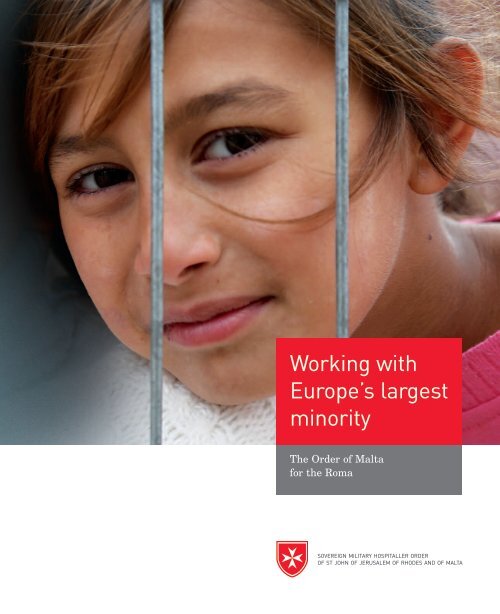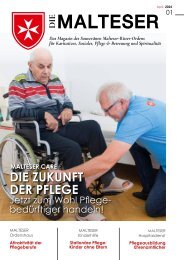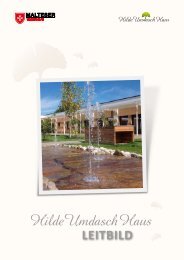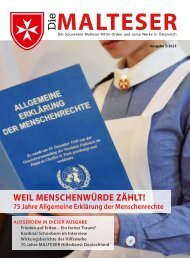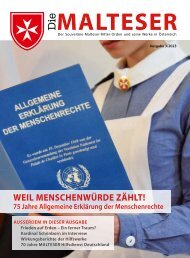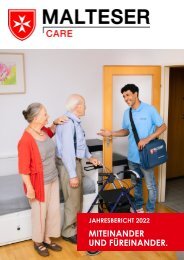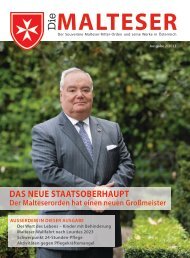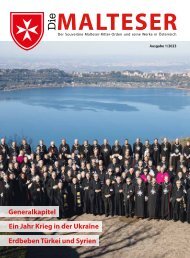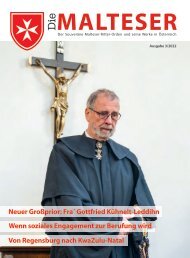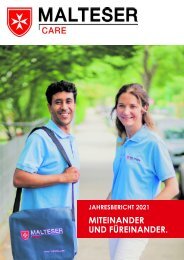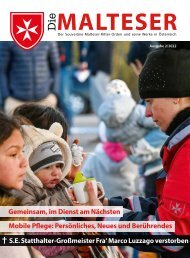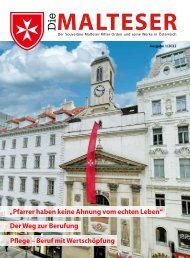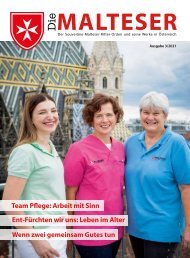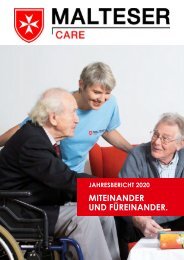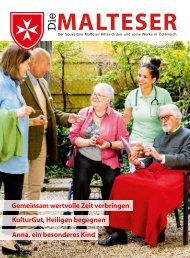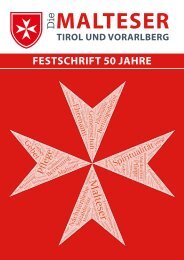Order of Malta - Working with Europe`s largest minority - The Roma
The Roma habe been in Europe since the 12 century. They are Europe`s largest minority and often suffer hardship, through poverty, lack of employment and lack of integration into local communities. The Order of Malta, seeing these unfulfilles lives, has set in motion many projects to help the Roma - from basic social skills for the children, through education and training, to finding employment and social acceptance. In these pages you will read about how these people live, their difficulties, and the activities and programmes the Order is running an many European countries to help them integrate into local society.
The Roma habe been in Europe since the 12 century. They are Europe`s largest minority and often suffer hardship, through poverty, lack of employment and lack of integration into local communities. The Order of Malta, seeing these unfulfilles lives, has set in motion many projects to help the Roma - from basic social skills for the children, through education and training, to finding employment and social acceptance. In these pages you will read about how these people live, their difficulties, and the activities and programmes the Order is running an many European countries to help them integrate into local society.
Create successful ePaper yourself
Turn your PDF publications into a flip-book with our unique Google optimized e-Paper software.
<strong>Working</strong> <strong>with</strong><br />
Europe’s <strong>largest</strong><br />
<strong>minority</strong><br />
<strong>The</strong> <strong>Order</strong> <strong>of</strong> <strong>Malta</strong><br />
for the <strong>Roma</strong><br />
SOVEREIGN MILITARY HOSPITALLER ORDER<br />
OF ST JOHN OF JERUSALEM OF RHODES AND OF MALTA
First edition<br />
Published July 2018
Contents<br />
2 4<br />
6<br />
Message from the<br />
Grand Hospitaller<br />
<strong>Working</strong> towards<br />
social integration<br />
Europe’s <strong>largest</strong><br />
<strong>minority</strong>: the <strong>Roma</strong><br />
10<br />
Creating dignity,<br />
building futures<br />
14<br />
Integration: the<br />
Sovereign <strong>Order</strong><br />
<strong>of</strong> <strong>Malta</strong>’s work<br />
<strong>with</strong> <strong>Roma</strong><br />
communities<br />
25<br />
How you can help<br />
CONTENTS 1
Message<br />
from the<br />
Grand Hospitaller
Grand Hospitaller Dominique<br />
de La Rochefoucauld-Montbel:<br />
“<br />
<strong>The</strong> <strong>Roma</strong> have been in Europe since<br />
the 12 th century. <strong>The</strong>y are Europe’s<br />
<strong>largest</strong> <strong>minority</strong> and <strong>of</strong>ten suffer<br />
hardship, through poverty,<br />
lack <strong>of</strong> employment and lack<br />
<strong>of</strong> integration into local communities.<br />
<strong>The</strong> <strong>Order</strong> <strong>of</strong> <strong>Malta</strong>, seeing these<br />
unfulfilled lives, has set in motion<br />
many projects to help the <strong>Roma</strong> –<br />
from basic social skills for<br />
the children, through education<br />
and training, to finding employment<br />
and social acceptance.<br />
In these pages you will read about<br />
how these people live, their difficulties,<br />
and the activities and programmes the<br />
<strong>Order</strong> is running in many European<br />
countries to help them integrate into<br />
local society.<br />
”<br />
<strong>The</strong> Grand Hospitaller, Dominique de La Rochefoucauld-Montbel<br />
◄ After school programmes for young <strong>Roma</strong> in Hungary encourage talent<br />
and diligence<br />
MESSAGE FROM THE GRAND HOSPITALLER<br />
3
<strong>Working</strong> towards<br />
social integration<br />
<strong>The</strong>re are around 12 million <strong>Roma</strong> – or gypsy – people<br />
in Europe. <strong>The</strong>y are the <strong>largest</strong> <strong>minority</strong> group, they are<br />
not socially integrated and <strong>of</strong>ten live in deep poverty.*<br />
THE ROMA: A PEOPLE IN NEED<br />
<strong>The</strong> <strong>Roma</strong> come originally from Asia, but from many different<br />
groups. <strong>The</strong>y are nomadic, very musical, athletic, love dancing<br />
and singing, and are very religious. <strong>The</strong>ir own language is<br />
<strong>Roma</strong>ni, but many speak only the language or dialect <strong>of</strong> the<br />
country they are living in.<br />
<strong>The</strong>re are deep inequalities for the <strong>Roma</strong>, including human<br />
rights issues. <strong>The</strong>y suffer from lack <strong>of</strong> employment and lack<br />
<strong>of</strong> education; in the coming years young <strong>Roma</strong> will make up<br />
10-20% <strong>of</strong> new labour market entrants (World Bank Report,<br />
24 February 2015).<br />
<strong>The</strong> European Union has recognised the strong need for their<br />
economic and social integration, <strong>with</strong> every EU country having<br />
a joint responsibility to improve their lives and futures. <strong>The</strong><br />
first ever legal instrument explicitly on <strong>Roma</strong> was adopted by<br />
an EU Council Recommendation in 2013. Since then, progress<br />
has been made, but it is recognised that more is needed.<br />
11 th MEETING OF THE AD HOC COMMITTEE<br />
OF EXPERTS FOR ROMA ISSUES (CAHROM),<br />
THE COUNCIL OF EUROPE,<br />
April 2016<br />
Four thematic reports on key concerns for <strong>Roma</strong> communities<br />
were tabled – child/early and forced marriages <strong>with</strong>in <strong>Roma</strong><br />
communities, <strong>Roma</strong> health mediators, vocational education<br />
and training for <strong>Roma</strong>, <strong>Roma</strong> and Travellers’ participation in<br />
advisory councils and consultative mechanisms.**<br />
EUROPEAN UNION: KEY AREAS FOR ACTION,<br />
June 2016<br />
<strong>The</strong> European Union June 2016 Factsheet*** proposes<br />
measures:<br />
• to fight against discrimination, promote intercultural<br />
dialogue, information on <strong>Roma</strong> history and culture;<br />
• to provide more access to education so that <strong>Roma</strong> can be<br />
socially integrated – including early education, early school<br />
leaving, individualised support;<br />
• to seek to provide more access to employment. <strong>Roma</strong><br />
participation in the labour market remains very weak;<br />
• to provide access to healthcare, particularly in deprived<br />
areas, and focus on preventive measures eg vaccination<br />
<strong>of</strong> children, family planning, raising health awareness;<br />
• access to housing – still more efforts are needed at local<br />
level;<br />
• cooperation and coordination – national public authorities<br />
for education, local authorities for housing and<br />
employment.<br />
In all <strong>of</strong> these activities, the aim is to scale up successful<br />
practices.<br />
WORLD BANK REPORT,<br />
February 2016<br />
“With CEE countries now facing rapid demographic changes<br />
deepened by emigration, low fertility, and aging, promoting<br />
4<br />
SOVEREIGN MILITARY HOSPITALLER ORDER OF ST. JOHN OF JERUSALEM OF RHODES AND OF MALTA
equality <strong>of</strong> opportunity for marginalised <strong>Roma</strong> makes even<br />
bigger economic sense. <strong>Roma</strong> constitute an increasing number<br />
<strong>of</strong> labour market entrants and, given the opportunity, they can<br />
contribute to the economic growth and prosperity in CEE<br />
countries,” says Arup Banerji, World Bank Director for<br />
Operations in the European Union.<br />
In: World Bank Report - Being Fair, Faring Better: Promoting<br />
Equality <strong>of</strong> Opportunity for Marginalized <strong>Roma</strong>, February 2016.<br />
“Addressing early childhood development gaps by sustaining<br />
parenting skills and improving the availability and affordability<br />
<strong>of</strong> quality services in the first 1,000 days <strong>of</strong> life could go a long<br />
way in enhancing opportunities for <strong>Roma</strong> children well into<br />
adulthood,” says Roberta Gatti, World Bank Global Lead for<br />
Labor, and the lead author <strong>of</strong> the Report.<br />
THE ROMA SOUNDING BOARD<br />
In mid 2017, the World Bank launched an initiative for <strong>Roma</strong>nia<br />
‘…which recognises a stronger need to understand the<br />
challenges facing <strong>Roma</strong> in <strong>Roma</strong>nia to create better<br />
interventions targeting their wellbeing and life chances -<br />
<strong>The</strong> <strong>Roma</strong> Sounding Board - a platform for hearing different<br />
voices and considering new ideas on how the World Bank<br />
and other interested partners can address issues<br />
<strong>of</strong> marginalisation and improve inclusion for the <strong>Roma</strong><br />
population.’ (World Bank, April 25, 2017.)<br />
THE GOAL<br />
<strong>The</strong> goal is social integration, whilst respecting the culture and<br />
identity <strong>of</strong> the <strong>Roma</strong>. <strong>The</strong> <strong>Order</strong> <strong>of</strong> <strong>Malta</strong> now runs integration<br />
programmes in Belgium, Hungary, <strong>Roma</strong>nia and Slovakia, <strong>with</strong><br />
recent additions in Albania, Croatia and Slovenia.<br />
Steps to integration<br />
1. Education and socialising.<br />
Projects start <strong>with</strong> the children, showing them a way<br />
<strong>of</strong> living that will benefit them, and involving the support<br />
<strong>of</strong> their mothers – their involvement is essential for the<br />
success <strong>of</strong> these projects.<br />
2. Improving living conditions.<br />
Activities include restoring dwellings which have fallen into<br />
disrepair, summer camps for the children, after-school<br />
centres and special lessons, a riding school.<br />
3. Teaching skills which can lead to employment.<br />
<strong>The</strong>se include learning how to work <strong>with</strong> others and how to<br />
use a computer.<br />
*World Bank Report, 2015<br />
**11 th meeting <strong>of</strong> the Ad hoc Committee <strong>of</strong> Experts for <strong>Roma</strong> Issues<br />
(CAHROM), April 2016<br />
*** outlined in the EU Factsheet, ‘Progress made by EU Member States in<br />
<strong>Roma</strong> integration,’ June 2016<br />
<strong>The</strong> response<br />
<strong>of</strong> the Sovereign <strong>Order</strong> <strong>of</strong> <strong>Malta</strong><br />
Responding to these needs and aware that in many<br />
European countries where the <strong>Order</strong> has a presence,<br />
the plight <strong>of</strong> the <strong>Roma</strong> needed its own special focus,<br />
in 2013 the Sovereign <strong>Order</strong> <strong>of</strong> <strong>Malta</strong> appointed its first<br />
Ambassador to the <strong>Roma</strong>.<br />
Ambassador Franz Salm-Reifferscheidt began his<br />
challenging task in September <strong>of</strong> that year. <strong>Working</strong> <strong>with</strong><br />
<strong>Order</strong> Associations and organisations in Albania, Belgium,<br />
Hungary, <strong>Roma</strong>nia, Slovakia and Slovenia,<br />
the Ambassador instigated 11 projects and activities<br />
for <strong>Roma</strong> communities. By 2015 he had set up a series<br />
<strong>of</strong> links across all these countries, all <strong>of</strong> which continue<br />
to develop and expand. A highlight in 2015 was a threeday<br />
pilgrimage to Rome for 250 gypsies, mostly children,<br />
from Albania, Croatia, Hungary, <strong>Roma</strong>nia, Slovakia and<br />
Slovenia, an audience <strong>with</strong> Pope Francis and meeting<br />
the Grand Master <strong>of</strong> the Sovereign <strong>Order</strong>. In 2016, further<br />
projects were added, in Albania and Croatia, and new<br />
initiatives set up in Hungary and Slovenia. In 2017,<br />
a multi-disciplinary centre was opened in Lezha, Albania,<br />
in 2018 new steps discussed in Croatia. As more projects<br />
come onstream, the count is approaching 20.<br />
WORKING TOWARDS SOCIAL INTEGRATION 5
Europe’s <strong>largest</strong><br />
<strong>minority</strong> group:<br />
<strong>The</strong> <strong>Roma</strong><br />
6<br />
SOVEREIGN MILITARY HOSPITALLER ORDER OF ST. JOHN OF JERUSALEM OF RHODES AND OF MALTA
WHO ARE THE ROMA?<br />
<strong>The</strong> <strong>Roma</strong>, or gypsies, first arrived in Europe from<br />
northern India, through what is now Iran, Armenia<br />
and Turkey. <strong>The</strong>y gradually spread their way across<br />
the whole <strong>of</strong> Europe from the 9 th century onwards.<br />
<strong>The</strong>y were always considered strangers, and they<br />
didn’t want to be settled.<br />
However, now they do, and they wish to stay in one<br />
place. <strong>The</strong>y like to have parties, in their caravans –<br />
in large family groups. <strong>The</strong>y are very religious, and<br />
like singing and dancing. <strong>The</strong>re are three generations<br />
to every one <strong>of</strong> ours. <strong>The</strong>y have no feeling <strong>of</strong> property.<br />
Due to the general lack <strong>of</strong> integration, they have little<br />
civic sense.<br />
<strong>The</strong>y face poverty, exclusion and discrimination.<br />
<strong>The</strong>y have poor living conditions and little or no<br />
education, so that these inequalities prevent them<br />
from realising their potential in life and living <strong>with</strong><br />
dignity.<br />
<strong>The</strong> key to their future is to teach the children.<br />
Coordinating <strong>with</strong> governments and local authorities,<br />
the <strong>Order</strong> <strong>of</strong> <strong>Malta</strong> aims to give them a future in their<br />
own country, <strong>with</strong> successful integration into local<br />
communities.<br />
A street help programme assists an elderly <strong>Roma</strong> in <strong>Roma</strong>nia<br />
◄ A <strong>Roma</strong> habitation in northern Albania<br />
EUROPE’S LARGEST MINORITY: THE ROMA 7
Where are<br />
the <strong>Roma</strong>?<br />
FINLAND 0,01<br />
SWEDEN 0,04<br />
LATVIA 0,01<br />
RUSSIA 0,6<br />
IRELAND 0,04<br />
BELARUS 0,02<br />
UNITED KINGDOM 0,15<br />
NETHERLANDS 0,04<br />
POLAND 0,05<br />
BELGIUM 0,04<br />
GERMANY 0,14 CZECH REPUBLIC 0,25<br />
SLOVAKIA 0,45<br />
UKRAINE 0,2<br />
FRANCE 0,6<br />
SWITZERLAND 0,04<br />
AUSTRIA 0,03<br />
HUNGARY 0,6<br />
SLOVENIA 0,01<br />
CROATIA 0,04<br />
ROMANIA 2,4<br />
MOLDAVIA 0,02<br />
BOSNIA H. 0,06<br />
SERBIA 0,5<br />
SPAIN 0,8<br />
ITALY 0,12<br />
MONTENEGRO 0,02<br />
NORTHERN<br />
MACEDONIA 0,26<br />
ALBANIA 0,1<br />
BULGARIA 0,8<br />
PORTUGAL 0,05<br />
GREECE 0,22 TURKEY 0,5<br />
ROM POPULATION (MLN)<br />
ROM POPULATION (%)<br />
0,01 0,1 1<br />
0 1 5 10<br />
8<br />
SOVEREIGN MILITARY HOSPITALLER ORDER OF ST. JOHN OF JERUSALEM OF RHODES AND OF MALTA<br />
World Bank fig. 2010
80 to 85%<br />
<strong>of</strong> <strong>Roma</strong> in Europe<br />
are sedentary<br />
1 out <strong>of</strong> 4<br />
<strong>Roma</strong> complete<br />
upper secondary<br />
school<br />
more than 71%<br />
<strong>of</strong> <strong>Roma</strong> Households<br />
in deep poverty<br />
CLOSE-UP 9
Creating dignity,<br />
building futures<br />
An interview <strong>with</strong> Franz Salm,<br />
Sovereign <strong>Order</strong> <strong>of</strong> <strong>Malta</strong> Ambassador<br />
to the <strong>Roma</strong><br />
10<br />
SOVEREIGN MILITARY HOSPITALLER ORDER OF ST. JOHN OF JERUSALEM OF RHODES AND OF MALTA
In September 2013 Franz Salm was appointed<br />
the Sovereign <strong>Order</strong> <strong>of</strong> <strong>Malta</strong>’s Ambassador for<br />
the <strong>Roma</strong>. It was a challenge that arrived at the right<br />
time, he says. He had just retired from thirty years<br />
<strong>of</strong> corporate life and did not see himself “just sitting<br />
around. I wanted to do something to help people who<br />
needed help. This is the essence <strong>of</strong> the <strong>Order</strong> and my<br />
own perspective, too.”<br />
<strong>The</strong> background to his brief: well before 2013 there<br />
were already activities to help <strong>Roma</strong> communities<br />
carried out by relief organisations <strong>of</strong> the <strong>Order</strong> <strong>of</strong><br />
<strong>Malta</strong>, but <strong>with</strong> an Ambassador at the helm, the work<br />
would acquire a close coordination. <strong>The</strong> <strong>Order</strong>’s work<br />
recognises that <strong>with</strong> <strong>Roma</strong> and travellers - there are<br />
approximately 12 million <strong>of</strong> them, the <strong>largest</strong> and<br />
most vulnerable <strong>minority</strong> in Europe – they are not<br />
only a social, but also a severe political concern.<br />
<strong>The</strong> Ambassador cites the World Bank survey <strong>of</strong><br />
February 2015, emphasising its central points - that<br />
we need to address the deep inequalities surrounding<br />
the <strong>Roma</strong>, that this is a human rights issue as well<br />
as smart economics - <strong>with</strong> young <strong>Roma</strong> constituting<br />
10-20% <strong>of</strong> new labour market entrants.<br />
<strong>The</strong> <strong>Order</strong>, he notes, <strong>with</strong> many volunteer corps<br />
worldwide, has an effective network for activities in<br />
this field.<br />
“By coordinating the activities, the effectiveness<br />
is obvious.”<br />
In the first two years in his new post, the<br />
Ambassador fundraised 1m euro for 11 projects,<br />
and fundraising from both public and private sources<br />
continues apace.<br />
He explains: “It is a 600-year old drama for the <strong>Roma</strong><br />
– but things really work if you give them dignity.<br />
Social workers are needed 24/7 – to help them in<br />
every situation. <strong>The</strong>se are not our guests! <strong>The</strong>y have<br />
dignity. You need a balance between social thinking<br />
and the needs <strong>of</strong> civil society.”<br />
As he discusses the needs <strong>of</strong> the <strong>Roma</strong> – he has<br />
travelled extensively in Eastern and Central Europe<br />
on fact-finding missions - he warns “Below poverty<br />
there is misery.” And he cautions that Eastern<br />
Slovakia will be the greatest concern in the coming<br />
years: gypsies are a significant percentage <strong>of</strong> the<br />
population. Of that percentage, 30% speak <strong>Roma</strong>ni,<br />
not Slovak.<br />
Fran Frrokaj, Mayor <strong>of</strong> Lezha and Franz Salm, Ambassador <strong>of</strong> the Sovereign <strong>Order</strong> <strong>of</strong> <strong>Malta</strong> to the <strong>Roma</strong> population inaugurate<br />
a new multi disciplinary centre for <strong>Roma</strong> & Egyptian communities in Albania<br />
CREATING DIGNITY, BUILDING FUTURES 11
<strong>The</strong> <strong>Order</strong>’s projects for the <strong>Roma</strong> focus on seven<br />
areas <strong>of</strong> need in <strong>Roma</strong> community centres:<br />
• hygiene and health facilities<br />
• medical checks<br />
• kindergarten and playground<br />
• tutoring school children<br />
• counselling for the mothers<br />
• apprenticeships, and<br />
• music, school and other activities leading to local<br />
integration.<br />
<strong>The</strong> most effective way to engage young <strong>Roma</strong> to<br />
learn, explains the Ambassador, is to encourage the<br />
mothers to send their children to school. “We counsel<br />
the mothers. And we train the girls to weave,<br />
the boys to do carpentry. We also educate the young<br />
in social behaviour, to build their self-confidence –<br />
we teach them to greet people and look them in the<br />
eye. When the children behave normally, people lose<br />
their mistrust <strong>of</strong> them, social prejudice disappears.<br />
A Jesuit who has looked after children in Sibiu,<br />
<strong>Roma</strong>nia, for years described them: ‘I follow their<br />
progress as if they were all my children. Now, some<br />
are going to university.’”<br />
<strong>The</strong> Ambassador organised a pilgrimage to Rome a<br />
couple <strong>of</strong> years ago for 220 <strong>Roma</strong> from six countries.<br />
<strong>The</strong>y had an audience <strong>with</strong> Pope Francis and met the<br />
Grand Master <strong>of</strong> the <strong>Order</strong>. “An unforgettable<br />
experience for everyone.”<br />
<strong>Order</strong> <strong>of</strong> <strong>Malta</strong> projects are now underway in Albania,<br />
Austria, Belgium, Croatia, Hungary, <strong>Roma</strong>nia,<br />
Slovakia, Slovenia and Ukraine. Ambassador Salm is<br />
engaged in unifying the programmes in each country,<br />
to review successes and share best practices.<br />
Progress is already evident, heartening for the<br />
organisations and encouraging for the communities<br />
themselves, as they begin to see they really do have<br />
a future, too.<br />
Pope Francis greets a young <strong>Roma</strong> pilgrim and his mother
NORWAY<br />
SWEDEN<br />
FINLAND<br />
<strong>Order</strong> <strong>of</strong> <strong>Malta</strong> integration<br />
activities underway for<br />
<strong>Roma</strong> people in Europe<br />
ESTONIA<br />
LATVIA<br />
RUSSIA<br />
DENMARK<br />
LITHUANIA<br />
BELARUS<br />
NETHERLANDS<br />
POLAND<br />
BELGIUM<br />
GERMANY<br />
CZECH REPUBLIC<br />
UKRAINE<br />
SLOVAKIA<br />
AUSTRIA<br />
FRANCE<br />
SWITZERLAND<br />
SLOVENIA<br />
CROATIA<br />
HUNGARY<br />
ROMANIA<br />
MOLDAVIA<br />
BOSNIA H.<br />
SERBIA<br />
Education and socialising (All related to<br />
children: centres for children, special<br />
programmes, academic and social games,<br />
music, summer camps…)<br />
ITALY<br />
MONTENEGRO<br />
NORTHERN<br />
MACEDONIA<br />
ALBANIA<br />
BULGARIA<br />
Improving living conditions<br />
Healthcare and hygiene, presence<br />
programme containing everything<br />
GREECE<br />
TURKEY<br />
Teaching skills leading to employment,<br />
counselling
Integration:<br />
<strong>The</strong> Sovereign <strong>Order</strong> <strong>of</strong> <strong>Malta</strong>’s work <strong>with</strong><br />
<strong>Roma</strong> communities<br />
14<br />
SOVEREIGN MILITARY HOSPITALLER ORDER OF ST. JOHN OF JERUSALEM OF RHODES AND OF MALTA
ALBANIA<br />
Multi-disciplinary centre in Lezha<br />
<strong>The</strong> centre, created and managed by the <strong>Order</strong>’s<br />
Malteser Albania, and opened in November 2017,<br />
provides services for those <strong>with</strong> special needs,<br />
in particular <strong>Roma</strong>. It includes a football field, a playground<br />
for children and <strong>of</strong>fers day care for preschool<br />
children and after school programmes for young<br />
students, as well as a sport centre. Psychological<br />
and legal consultancy is also <strong>of</strong>fered. <strong>The</strong> multidisciplinary<br />
centre is supported by the local municipality,<br />
the <strong>Order</strong>’s Global Fund for Forgotten People,<br />
and by private donors. Lezha, in the north east,<br />
is a city <strong>with</strong> 130,000 inhabitants, 5% <strong>of</strong> them <strong>Roma</strong>.<br />
<strong>The</strong> key activities:<br />
• Education activities for children: learning and<br />
support classes for children enrolled in the<br />
9-year public education system, outdoor games<br />
and sports.<br />
• Legal assistance. Many emigrant families were<br />
forced, for legal or economic reasons, to leave<br />
the countries where they were living. <strong>The</strong>ir return<br />
has brought economic and social problems.<br />
<strong>The</strong> Albanian auxiliary organisation <strong>of</strong> the <strong>Order</strong><br />
<strong>of</strong> <strong>Malta</strong> works to ensure registration <strong>of</strong> children<br />
in schools, economic benefits assistance and<br />
employment opportunities. It also works <strong>with</strong><br />
referral and direct support groups for benefits<br />
from public services, such as registration in the<br />
Civil Registry Office, enrolment in the education<br />
system, referrals for enrolment in vocational<br />
training courses, and employment / reemployment.<br />
• <strong>The</strong> centre works <strong>with</strong> between 40 and 60 <strong>Roma</strong><br />
youngsters in collaboration <strong>with</strong> volunteers.<br />
Annual summer camp in Albania for <strong>Roma</strong> children means fun and community integration<br />
◄ In Albania, dental health checks are regularly carried out for <strong>Roma</strong> children<br />
INTEGRATION 15
AUSTRIA<br />
<strong>The</strong> <strong>Order</strong> <strong>of</strong> <strong>Malta</strong> has set up<br />
a new <strong>Roma</strong> project in Austria<br />
An after school programme has been launched in<br />
Graz, Austria, for <strong>Roma</strong> children. <strong>The</strong> aim is to provide<br />
help <strong>with</strong> school work and <strong>with</strong> the language, to<br />
create a community <strong>of</strong> support and social integration.<br />
BELGIUM<br />
Integration project in Ghent<br />
In response to the growing number <strong>of</strong> <strong>Roma</strong> living<br />
in the city, the Belgian Association <strong>of</strong> the <strong>Order</strong> <strong>of</strong><br />
<strong>Malta</strong> has adapted an entire floor <strong>of</strong> its La Fontaine<br />
hospice for the homeless in Ghent to create special<br />
support for <strong>Roma</strong> children. Since early 2016, weekly<br />
classes in the Flemish language are being run for the<br />
children, as well as social adaptation training: every<br />
child who comes has to take a shower, can change<br />
and wash their clothes, and receive training in<br />
personal hygiene and basic first aid. Educational<br />
and computer games are also on <strong>of</strong>fer. <strong>The</strong> aim is<br />
to integrate the children into the local environment,<br />
providing education and fun at the same time and,<br />
as word gets around, gradually more and more<br />
children are taking part. Communication <strong>with</strong> the<br />
children is key and, as <strong>with</strong> other <strong>Order</strong> programmes<br />
for the <strong>Roma</strong>, the Association’s first call is always<br />
to engage the interest <strong>of</strong> the mothers and to explain<br />
that their children’s future depends on integration<br />
into local society. Funding support is from the <strong>Order</strong>’s<br />
Ambassador to the <strong>Roma</strong>, the Belgian Association,<br />
and a cooperative, <strong>with</strong> discussions for additional<br />
support from the city <strong>of</strong> Ghent.<br />
A special project focusses on play to integrate school groups<br />
After school activities in Ghent, Belgium, promote enjoyable<br />
ways to learn<br />
16<br />
SOVEREIGN MILITARY HOSPITALLER ORDER OF ST. JOHN OF JERUSALEM OF RHODES AND OF MALTA
An art group project brings <strong>Roma</strong> youngsters together<br />
CROATIA<br />
An education project for a deprived<br />
group<br />
Various <strong>Roma</strong>ni groups have lived in Croatia since<br />
the 14 th century and are still concentrated in the north<br />
<strong>of</strong> the country. <strong>The</strong>y are the <strong>largest</strong> national <strong>minority</strong>.<br />
As in other European countries <strong>with</strong> <strong>Roma</strong> settlements,<br />
their current problems concern unemployment,<br />
poor housing conditions, inadequate water<br />
supply and electricity infrastructure in <strong>Roma</strong> settlements,<br />
poor health care and low average level<br />
<strong>of</strong> education.<br />
Integration is key to involving <strong>Roma</strong> groups in the life<br />
<strong>of</strong> the country and their own survival. Small steps<br />
can create great examples and inspire others,<br />
and learning from others makes implementation<br />
more efficient.<br />
Taking inspiration from work underway in <strong>Roma</strong>nia,<br />
the <strong>Order</strong> <strong>of</strong> <strong>Malta</strong> has plans underway to <strong>of</strong>fer after<br />
school activities for <strong>Roma</strong> children in the area<br />
<strong>of</strong> Varazdin, which has a large <strong>Roma</strong> population.<br />
<strong>The</strong> after school programmes will focus on learning<br />
through games and activities, <strong>with</strong> the aim <strong>of</strong> encouraging<br />
the children to stay in education, improve their<br />
reading, writing and social skills, and become more<br />
integrated <strong>with</strong> the local community.<br />
As the programme is rolled out, plans include<br />
expanding activities to the weekends.<br />
An important benefit is being able to learn from<br />
the experiences <strong>of</strong> the highly successful after school<br />
and education programme currently running<br />
in Satu Mare, <strong>Roma</strong>nia: <strong>Roma</strong> children now demonstrate<br />
higher self-esteem, are clean and polite and<br />
doing significantly better in school. <strong>The</strong> local population,<br />
initially suspicious, are now asking if they can<br />
send their children to the centre, too. This is genuine<br />
integration.<br />
Population <strong>of</strong> <strong>Roma</strong> in Croatia: at least 35,000<br />
(European Commission Factsheet 2014).<br />
INTEGRATION 17
HUNGARY<br />
<strong>Roma</strong> integration ‘Presence<br />
Programmes’ <strong>of</strong> the Hungarian<br />
Charity Service <strong>of</strong> the <strong>Order</strong> <strong>of</strong><br />
<strong>Malta</strong> (MMSz)<br />
What ‘presence’ means: Presence, as the Hungarian<br />
Charity Service <strong>of</strong> the <strong>Order</strong> <strong>of</strong> <strong>Malta</strong> explains, means<br />
being present in the life <strong>of</strong> another human being.<br />
In <strong>Roma</strong> communities, the social work the <strong>Order</strong><br />
<strong>of</strong> <strong>Malta</strong> provides is the most effective way<br />
<strong>of</strong> integrating people at the edge <strong>of</strong> society.<br />
<strong>The</strong>y usually live in deteriorating areas in cities,<br />
in colonies around villages - small settlements<br />
turning into ghettos - in circumstances unimaginable<br />
to the average citizen. Malnutrition, even starvation,<br />
poor living conditions and frequent addiction,<br />
all contribute to poor health. Crime, violence<br />
and usury are prevalent in these communities and<br />
an‘existence outside the law’ leaves the authorities<br />
helpless to intervene.<br />
<strong>The</strong>se people are living not in poverty, but in misery.<br />
If poverty is lack <strong>of</strong> possessions, misery is another<br />
category altogether. Poor families have to fight for<br />
everything, but they have their values and goals.<br />
In misery, the lack <strong>of</strong> means plummets to a level that<br />
destroys all values. Nothing counts but the needs<br />
<strong>of</strong> the moment. That is why on freezing winter nights<br />
they will burn their furniture, or if necessary,<br />
their clothes or their children’s school books.<br />
<strong>The</strong> Charity Service takes its Presence Programme<br />
into communities like these, working together <strong>with</strong><br />
them, sharing their hard lives, identifying their<br />
problems, finding solutions - for housing,<br />
employment, education.<br />
As a first step the Charity Service opens an <strong>of</strong>fice<br />
in the community. If local houses have no heating,<br />
no water supply, then the <strong>of</strong>fice <strong>of</strong> the Service<br />
is also operated <strong>with</strong>out heating and running water.<br />
This sharing <strong>of</strong> a common situation, and a continuous<br />
helping presence, creates the conditions for mutual<br />
acceptance and trust. Social work, community<br />
development and programmes for children are set<br />
up. Next, more services are introduced, involving<br />
institutions in the surrounding main society,<br />
and selecting tasks on the basis <strong>of</strong> social diagnosis<br />
and local needs.<br />
<strong>The</strong> Presence Programme is implemented in<br />
a different way in each settlement, but <strong>with</strong> common<br />
elements in all the settlements:<br />
• social support (family support, debt management,<br />
community care for addicts)<br />
• education, training (support for local schools,<br />
after school child programmes, early childhood<br />
development, playhouses, community areas,<br />
special schools)<br />
• training for employment (organisation <strong>of</strong> training,<br />
assistance to increase mobility, transit employment,<br />
creation <strong>of</strong> jobs, vegetable garden and<br />
farming programmes )<br />
• housing assistance (renewal through donations,<br />
voluntary group work, mobility increase, assistance<br />
in moving from the community)<br />
• health support (community baths, health screenings,<br />
taking patients to doctors, buying medicines,<br />
medical devices)<br />
• community development (operation <strong>of</strong><br />
community areas, organisation <strong>of</strong> community<br />
programmes, actions)<br />
• mediation (positive messages for the excluded<br />
group, pr<strong>of</strong>essional discussions, involvement <strong>of</strong><br />
sponsors and volunteers, conflict management).<br />
18<br />
SOVEREIGN MILITARY HOSPITALLER ORDER OF ST. JOHN OF JERUSALEM OF RHODES AND OF MALTA
PRESENCE PROGRAMMES AROUND<br />
THE COUNTRY<br />
Monor<br />
<strong>The</strong> Programme has been running since 2005 in the<br />
<strong>Roma</strong> settlement <strong>of</strong> Tabán, an area in Monor, hosting<br />
55 families, about 400 people. When the <strong>Order</strong><br />
<strong>of</strong> <strong>Malta</strong> Charity Service in Hungary launched it,<br />
the percentage <strong>of</strong> dropouts at the local primary<br />
school was very high. Teenage children left school<br />
early and became parents. By their thirties they were<br />
already grandparents. Unemployment and poverty<br />
were inherited from generation to generation.<br />
<strong>The</strong> Service started in a container <strong>of</strong>fice <strong>with</strong> a single<br />
social worker. <strong>The</strong>n children’s programmes began;<br />
even illiterate grandparents have been convinced<br />
to finish their primary school studies. An afternoon<br />
school was established, and the Sure Start Children’s<br />
Centre for the development <strong>of</strong> children aged 0 to 3,<br />
where basic skills such as personal hygiene are<br />
taught (cleaning teeth, washing hands) - not learned<br />
from parents, as the parents themselves don’t do it,<br />
and in most houses there is no running water.<br />
Today, primary school failures are minimal,<br />
most <strong>of</strong> the children complete basic education<br />
and there are young people <strong>with</strong> university degrees<br />
in the settlement.<br />
Tarnabod<br />
In this village <strong>of</strong> 800 people, ninety per cent are<br />
<strong>Roma</strong> and the majority <strong>of</strong> families have had no<br />
experience <strong>of</strong> work for generations. After finishing<br />
school, the children had no way <strong>of</strong> avoiding<br />
unemployment. In cooperation <strong>with</strong> the local<br />
government, the Charity Service started the<br />
‘Reception Village Programme’. Homeless families<br />
from Budapest were received in empty houses in<br />
Tarnabod. <strong>The</strong> Service purchased a minibus – there<br />
is no public transport – so people can go to work in<br />
surrounding settlements. <strong>The</strong> Service also supports<br />
family farming. Ten years ago, <strong>with</strong> government<br />
support the Service converted an empty stable into<br />
an electronic waste disassembling unit, creating<br />
thirty jobs. <strong>The</strong> plant is now self-supporting.<br />
After school work helps young students to improve their academic performance<br />
INTEGRATION 19
As there were no heated buildings in Tarnabod,<br />
the children went to the village pub to get warm.<br />
<strong>The</strong> Service then bought the building and created<br />
a playhouse for the children; since 2011 the local<br />
kindergarten and school have been operated by<br />
the Service. Today it is normal that children living in<br />
Tarnabod complete their studies, acquire a pr<strong>of</strong>ession<br />
or prepare for graduation.<br />
Miskolc<br />
In 2014, the Presence Programme was started in<br />
a ghetto-like housing estate in the centre <strong>of</strong> the town,<br />
where a segregated community was facing<br />
evacuation. <strong>The</strong> Charity Service has created<br />
community areas, providing family assistance<br />
and handling administrative issues, and a special<br />
playground in the housing estate.<br />
3,000 people live in the outskirts, in Lyukó-völgy.<br />
<strong>The</strong>re are no services available. <strong>The</strong> Charity Service<br />
community house provides facilities for bathing,<br />
washing, learning. Children’s programmes have been<br />
organised and medical examinations are carried out<br />
by volunteer medical doctors.<br />
Pécs<br />
More than 800 people live in sub-standard conditions<br />
in Pécs György-telep, formerly a miners’ colony.<br />
<strong>The</strong> Presence Programme, started in 2007<br />
and followed by an EU-financed rehabilitation<br />
programme, has changed lives and improved living<br />
conditions for 127 families.<br />
Veszprém<br />
<strong>The</strong> ten-storey housing estate in the industrial area<br />
<strong>of</strong> the town has turned into a ghetto over the years.<br />
Public utilities were unavailable or not maintained.<br />
With the Presence Programme launched in 2009,<br />
electricity meters were changed to prepaid meters<br />
and debts were rescheduled. Having seen<br />
the successful results, in 2016 the municipality<br />
<strong>of</strong> Veszprém entrusted the Charity Service to handle<br />
all local government-owned flats in Veszprém.<br />
A junior exercise and workout programme – in <strong>Order</strong> <strong>of</strong> <strong>Malta</strong> tee shirts
Rehearsing her trumpet solo - the Hungarian <strong>Roma</strong> Sinfonia players<br />
Tatabánya<br />
A generation has grown up in Tatabánya Mésztelep<br />
<strong>with</strong>out paying for electricity - it was normal for them<br />
to steal electricity. With a complex and intense social<br />
work programme and the cooperation <strong>of</strong> the power<br />
supply company and the Charity Service, power<br />
stealing was stopped.<br />
Gyulaj<br />
In this village <strong>of</strong> 1000 inhabitants the Charity Service,<br />
together <strong>with</strong> the local government, has established<br />
a social cooperative, <strong>with</strong> the goods produced sold<br />
in two neighbouring towns. Since 2015 the Charity<br />
Service has run the local kindergarten and the school<br />
and has introduced soccer and music programmes -<br />
a great success in the life <strong>of</strong> the settlement.<br />
In 2017 a music programme – Sinfonia – was set up<br />
to encourage children to come together and take part<br />
in musical programmes and initiatives.<br />
A collaboration between five centres, 700 <strong>Roma</strong><br />
children participate. Children <strong>with</strong> particular talent<br />
are given extra tutoring.<br />
<strong>The</strong> Presence Programmes <strong>of</strong> the Hungarian Charity<br />
Service <strong>of</strong> the <strong>Order</strong> <strong>of</strong> <strong>Malta</strong> are currently being<br />
implemented in Tarnazsadány, Erk, Kadarkút,<br />
Gyöngyös, Hirics, Táska, Tarpa, Pácin, Tiszabura<br />
and Tiszab. <strong>The</strong> Service has been a partner<br />
in implementing the ‘Chance for Children EU<br />
Programme’ from its beginning in 2010. In hundreds<br />
<strong>of</strong> small towns, integration programmes financed<br />
by grants are facilitated by the Service’s skills<br />
and expertise.<br />
In recognition <strong>of</strong> its pr<strong>of</strong>essional achievements,<br />
the Hungarian Charity Service <strong>of</strong> the <strong>Order</strong> <strong>of</strong> <strong>Malta</strong><br />
was invited to act as the leader <strong>of</strong> the PAIRS<br />
(Effective Programmes for the Active Integration/<br />
Inclusion <strong>of</strong> the <strong>Roma</strong> in South-East Europe)<br />
programme. In the framework <strong>of</strong> the 1.8 million euro<br />
project, involving eight European countries (Albania,<br />
Bulgaria, Hungary, Italy, <strong>Roma</strong>nia, Serbia, Slovakia,<br />
Ukraine), and eighteen civil and governmental<br />
organisations, best practices and successful<br />
programmes <strong>of</strong> <strong>Roma</strong> integration have been<br />
collected.<br />
INTEGRATION 21
ROMANIA<br />
Riding lessons lead to academic<br />
progress and integration<br />
In Köröspatak, about a thousand <strong>Roma</strong> live in<br />
a settlement <strong>with</strong>out electricity and running water.<br />
“It is not poverty,” says Ambassador Salm. “It is<br />
misery.” <strong>The</strong> children, poor, bored, were persuaded<br />
to learn to ride horses by the wife <strong>of</strong> the <strong>Order</strong>’s<br />
<strong>Roma</strong>nian Association Hospitaller, herself an<br />
accomplished rider. After three months <strong>of</strong> training,<br />
their gymnastics on horseback have been<br />
exceptional. <strong>The</strong> riding school goes from strength<br />
to strength – the children are happy and as a result<br />
are doing better at school, and integration is working.<br />
<strong>The</strong>re are now 84 young riders and a small music<br />
school has recently been set up.<br />
In the summer <strong>of</strong> 2016, the 12 gypsy junior riders<br />
from Köröspatak travelled <strong>with</strong> members and friends<br />
<strong>of</strong> the <strong>Order</strong>’s <strong>Roma</strong>nian Association to Weilhein,<br />
Bavaria, to take part in a riding gymkhana, a further<br />
sign <strong>of</strong> acceptance and successful integration.<br />
In Satu Mare, an ‘after-school centre’ run by the<br />
<strong>Order</strong> <strong>of</strong> <strong>Malta</strong> <strong>Roma</strong>nian Relief Service welcomes<br />
forty gypsy children every day. Together <strong>with</strong> <strong>Order</strong><br />
volunteers, the children go over their schoolwork,<br />
play games, have fun – and observe the clean and<br />
sparkling environment. This important assistance<br />
is aimed at encouraging them not to abandon their<br />
schooling.<br />
<strong>The</strong> St. Josif Day Centre also supports 120<br />
disadvantaged children, who take part in different<br />
educational, counselling and free time activities every<br />
week, get given a hot nourishing meal, and have<br />
a bath.<br />
In Băbeni the Service is also carrying out permanent<br />
programmes, ‘Social and educational assistance for<br />
gypsy children.’<br />
In Pauleasca a new centre is planned, to provide care<br />
and work for the beggars who have arrived from<br />
Salzburg (70% come from this town in southern<br />
<strong>Roma</strong>nia) and to support their repatriation.<br />
Meantime, a house has been rented where they<br />
can be tutored and mentored.<br />
Population <strong>of</strong> <strong>Roma</strong> in <strong>Roma</strong>nia: 730,000-970,000<br />
(European Commission factsheet 2014).<br />
A young <strong>Roma</strong> shows his gymnastic skills on horseback – Transylvania, <strong>Roma</strong>nia
SLOVAKIA<br />
Pastoral care and education<br />
Orechov dvor in Western Slovakia<br />
A daily project provides (i) a maternal care centre<br />
for young <strong>Roma</strong> mothers, (ii) after school education<br />
for <strong>Roma</strong> children and (iii) a daily school bus which<br />
brings the <strong>Roma</strong> children to the local public school.<br />
Two wide-ranging projects set up and run by<br />
the <strong>Order</strong> <strong>of</strong> <strong>Malta</strong>’s Slovakia auxiliary organisation,<br />
one in the west <strong>of</strong> the country, the other in the east,<br />
are providing care and support to local <strong>Roma</strong><br />
communities.<br />
<strong>The</strong> problems these <strong>Roma</strong> face are a huge<br />
unemployment rate and little education,<br />
discrimination and social exclusion. Most live in poor<br />
conditions in slums, particularly in the east <strong>of</strong><br />
the country.<br />
Olejnikov in Eastern Slovakia<br />
In Olejnikov, a daily programme gives pre-school<br />
education to young <strong>Roma</strong> children aged between<br />
4 and 6. <strong>The</strong>y learn the Slovak language and basic<br />
skills, such as hygiene, so that they are prepared<br />
to enter the public school process <strong>with</strong>out being<br />
disadvantaged. <strong>The</strong> project has already shown very<br />
positive results: in 2015, a state psychologist allowed<br />
almost all the children from that year’s class to enter<br />
the public school system.<br />
<strong>Roma</strong> population in Slovakia: approximately 490,000<br />
(European Commission Factsheet 2014).<br />
Storytime <strong>with</strong> young <strong>Roma</strong> in Slovakia<br />
INTEGRATION 23
SLOVENIA<br />
Establishing trust and a special<br />
publishing initiative<br />
UKRAINE<br />
Helping a community to live safely<br />
<strong>The</strong> <strong>Roma</strong> live in all parts <strong>of</strong> the country, <strong>with</strong> the<br />
highest concentrations in Novo Mesto (South East<br />
Slovenia) and Murska Sobota (North East Slovenia).<br />
<strong>The</strong>y live in very poor housing conditions, have poor<br />
education or none at all, are mainly <strong>with</strong>out<br />
employment and suffer discrimination.<br />
<strong>The</strong> <strong>Order</strong> <strong>of</strong> <strong>Malta</strong> Slovenian Association’s projects<br />
for the <strong>Roma</strong> started in 2015. A 3-year work plan<br />
was created, to cover a number <strong>of</strong> areas: assistance<br />
in pastoral work in Slovenia, <strong>with</strong> publications<br />
and pilgrimages, and help to improve general living<br />
conditions in the <strong>Roma</strong> settlements in Brezje and<br />
Žabjek (region <strong>of</strong> Novo Mesto and Pušča –<br />
a settlement near Murska Sobota).<br />
Special initiative: <strong>The</strong> publication <strong>of</strong> two prayer<br />
books, in the two most widely spoken <strong>Roma</strong> dialects,<br />
translated <strong>with</strong> the help <strong>of</strong> volunteers from the <strong>Roma</strong><br />
themselves. Published August 2016, the books have<br />
been created to help pastoral work, and to aid<br />
volunteers working <strong>with</strong> these groups in issues<br />
<strong>of</strong> health, social care and education.<br />
Beregovo has a population <strong>of</strong> over 7,000 <strong>Roma</strong> who<br />
live on the edges <strong>of</strong> the society, in extremely poor<br />
habitations, <strong>with</strong> a lack <strong>of</strong> basic services. <strong>The</strong> <strong>Order</strong><br />
<strong>of</strong> <strong>Malta</strong> has been engaged in providing a clean water<br />
system, including clean drinking water and a wash<br />
house for the community, and educating the<br />
population in safe hygiene practices.<br />
Plans underway in 2018 focus on a mobile dental<br />
clinic, to operate in the city.<br />
<strong>Roma</strong> population in Slovenia is about 10,000 people<br />
(European Commission Factsheet 2014).<br />
A new after school project in Beregovo: learning games for young <strong>Roma</strong><br />
24<br />
SOVEREIGN MILITARY HOSPITALLER ORDER OF ST. JOHN OF JERUSALEM OF RHODES AND OF MALTA
How you<br />
can help<br />
DONORS<br />
<strong>The</strong>re are three groups, each <strong>of</strong>fering support in their<br />
own way, all contributing to the success <strong>of</strong> the work:<br />
Those in Group One say ‘do whatever<br />
you want’;<br />
Group Two donate restricted funds – the<br />
Ambassador identifies a project and this<br />
donor will cover it;<br />
Group Three are donors who wish to be<br />
a partner.<br />
Photos:<br />
Calin Piescu, Horwath Michal<br />
For more information:<br />
Ambassador Franz Salm<br />
f.salm@order<strong>of</strong>malta.int
SOVEREIGN MILITARY HOSPITALLER ORDER<br />
OF ST JOHN OF JERUSALEM OF RHODES AND OF MALTA<br />
Magistral Palace<br />
Via dei Condotti, 68<br />
Rome - Italy<br />
Tel. +39.06.67581.250<br />
info@order<strong>of</strong>malta.int<br />
www.order<strong>of</strong>malta.int


